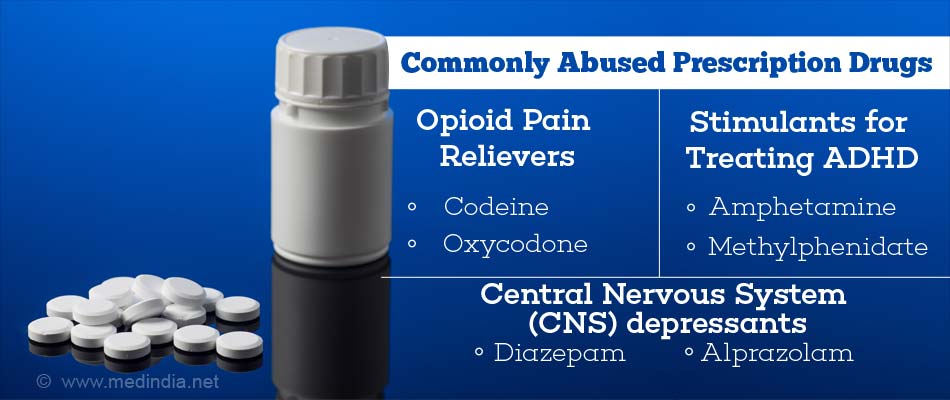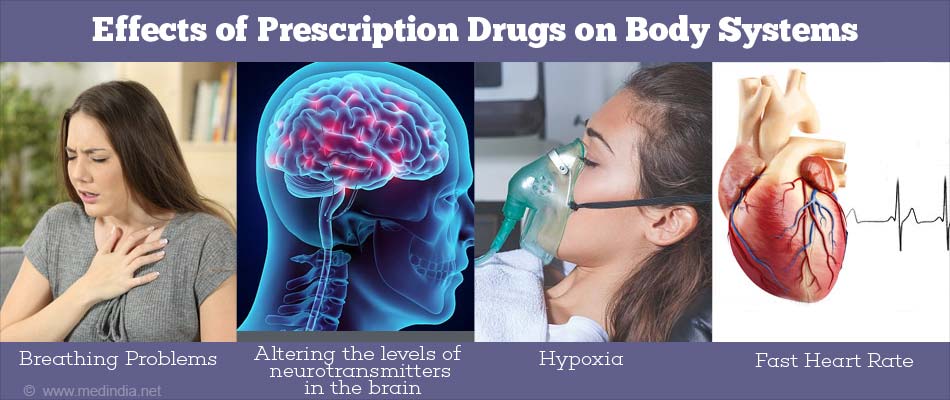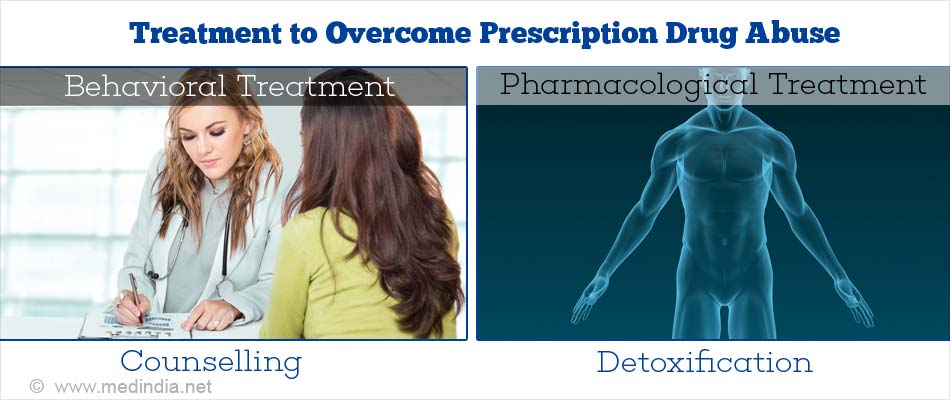- Facts of Prescription Drugs - (https://teens.drugabuse.gov/drug-facts/prescription-drugs)
- Prescription Drug Abuse Facts and Statistics - (http://www.newbeginningsdrugrehab.org/prescription-drug-abuse-facts-and-statistics)
- Prescription Drugs - (http://www.drugfreeworld.org/drugfacts/prescription-drugs.html)
- Prescription Drug Abuse - (https://medlineplus.gov/prescriptiondrugabuse.html)
- What is Prescription Drug Abuse? - (http://kidshealth.org/en/teens/prescription-drug-abuse.html)
- Basics of Prescription Drug Abuse - (http://www.mayoclinic.org/diseases-conditions/prescription-drug-abuse/basics/definition/con-20032471)
- Prescription Cold Medicines - (https://www.drugabuse.gov/drugs-abuse/prescription-drugs-cold-medicines)
What is Prescription Drug Abuse?
Prescription drugs abuse over the years has taken epidemic proportions, however it is still to catch the attention of the health policy makers to implement safety and preventive measures. The abuse has escalated at an alarming rate over the last couple of decades making it a simmering health issue among the younger population in many countries. The most common misuse is with drugs that either stop pain or experience a high to stay alert or lose weight. Most of these abused drugs have some mind-altering properties - like opioids, tranquilizers and stimulant drugs. The drugs are obviously being consumed for purposes other than their intended use or used by individuals other than the person for whom they were prescribed. The misuse of these drugs can be as dangerous as with drugs that are illegal or street drugs. The abuse can lead to drug addiction, drug interactions and overdose deaths.
There is a higher prevalence among the men for abuse of opioids in some countries and in others the prevalence is similar for both the sexes. It is estimated that about 52 million Americans at least once during their lifetime use prescription drugs for purpose other than for which it is prescribed. The opioids are generally prescribed for pain whereas stimulants are given for the treatment of conditions such as ADHD or for weight loss.
Which Prescription Drugs are Commonly Abused?
Prescription drugs belonging to following classes are commonly misused.
- Opioid pain relievers also called as Happy Pills – e.g. Products containing the opioid drugs like codeine, hydrocodone and oxycodone.
- Stimulants for treating Attention Deficit Hyperactivity Disorder (ADHD) – e.g. Products containing drugs like amphetamine and methylphenidate.
- Central Nervous System (CNS) depressants / Anxiety relievers - also known as Sleeping pills or Zombie ills– e.g. Diazepam and alprazolam.

How are Prescription Drugs Misused or Abused?
The prescriptions drugs can be as dangerous, sometimes even more than the prohibited or illegal drugs. They can lead to adverse health effects and an overdose of these prescription drugs can be fatal, when taken in combination with alcohol or other drugs.
Prescription and OTC drugs could be abused in following ways:
- Consuming medications prescribed for others, without consulting a health provider – This is normally observed within a family, when unused or spare painkillers or sedatives are used by a person other than the one prescribed
- Taking medications in a higher dose or in a manner other than prescribed – The medications which are to be used orally are abused by consuming in a different form, e.g. crushing the tablets and snorting the powder. This methodology accelerates the entry into bloodstream and the effects are seen immediately
- Consuming medications for the purpose of obtaining a high – Some drugs produce enjoyable effects at the same dose as prescribed for a particular ailment. Therefore, people abuse these drugs, in order to get “high”
- Mixing with other drugs – Some people mix prescription drugs with alcohol or other drugs and this misuse could be dangerous
What are the Effects of Prescription Drugs on Body Systems?
Abuse of prescription drugs could affect the various organs in body.
Effects on the brain: The brain has some chemicals known as neurotransmitters and some prescription drugs work on these neurotransmitters, which produce effects varying with the drug.
Stimulants such as methylphenidate (Ritalin) increase the levels of the brain chemicals dopamine and norepinephrine. The effects produced are similar to cocaine.
Opioid pain killers such as oxycodone (OxyContin) attach to the same receptors as targeted by illegal opioids like heroin. These are involved in the perception of pain and pleasure.
Antidepressants produce calming and relaxing effects by altering the levels of neurotransmitters in the brain.
A passion to experience these pleasurable feelings often leads to addiction or drug dependence.
Other health effects of the drugs include the following:
Opioids like codeine and oxycodone may cause constipation, drowsiness and slow down breathing. The slow breathing at high doses reduces the amount of oxygen that reaches brain, causing hypoxia. This could lead to coma and permanent brain damage
CNS depressants like barbiturates slow down activity of the brain and may cause drowsiness and lack of co-ordination. At higher doses, these can cause death, especially when combined with alcohol or other cold and allergy medications.
Stimulants like amphetamine or methylphenidate may cause the body temperature to rise and make heart beat very fast.

What Factors Increase the Risk of Drug Abuse?
Many factors, in isolation or in combination, could play a role in triggering drug abuse. These could include genetic, environmental and social factors.
- Family members- Members in a family who are already addicted or abuse drugs can influence other young or susceptible members to abuse drugs
- School- Friends who have been abusing drugs can encourage or provoke colleagues to try drugs for one time and this could lead to addiction
- Social influence – Social factors like unstable relationships, peer pressure, sexual abuse, rebellious feeling and low confidence could all lead to drug abuse
What could be the Consequence of Prescription Drug Abuse?
Some of the consequences of prescription drug abuse could include the following:
- Motor vehicle accidents due to driving under the influence of drugs
- Decreased academic performance
- Being involved in crime
- Troubled relationships
How to Overcome or Treat Prescription Drug Abuse?
Depending on the individual and the drug being abused, two main categories of drug addiction treatment have been used, behavioral and pharmacological.
Behavioral treatment: Individuals are counselled to handle the way in which they can reduce the dose of drugs, get rid of cravings and overcome relapses.
Pharmacological treatment: In order to overcome the drug abuse, detoxification may be needed as a part of the treatment. This could vary with the prescription drug being abused and the purpose for which it is used. The detoxification could lead to withdrawal symptoms which could be dangerous; hence, this must be done as recommended by healthcare provider.

Example of methodologies to overcome specific drug abuse include:
Overcoming opioid abuse: The dose of opioid is reduced gradually until no dose is administered. Other supporting medications like clonidine, used for high blood pressure, can be prescribed for managing opioid withdrawal symptoms.
Treatment from abuse of sedatives or anti-anxiety medications: The dose needs to be reduced gradually until no dose is administered. The withdrawal symptoms could be severe and it could take time for the body to adjust to the low doses of the medications. Simultaneously, other medications may need to be administered to stabilize mood and reduce anxiety.
Withdrawal from Stimulants: The dose of the stimulants needs to be gradually decreased and symptoms of sleep, diet and mood need to be addressed, under supervision of healthcare provider.
Health Tips to Avoid and Control Prescription Drug Abuse
- Keep medications, especially sedatives, stimulants and opioid pain killers in a safe place
- Do not use medications prescribed for others
- Avoid temptations and peer pressure to take medications that are not prescribed for you
- Seek help for mental illness






